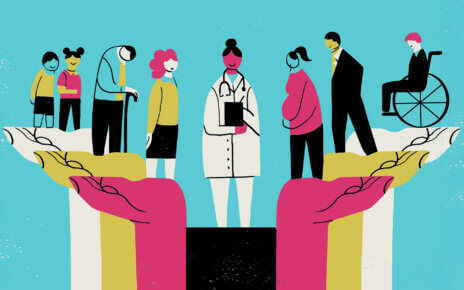I’ve spent a lot of time thinking about money; thinking about all of the money that I could use to help myself out financially. With all of the school loans and car loans, it’s seriously enough to make my head spin, fall off, and roll all the way over to the bank to ask for some more money to pay off what I already owe. I’ve thought about all of the money that I wish I could use to surprise my mother with a new car to replace her old, beat up, raggedy soccer-mom minivan that barely gets her to the grocery store around the corner, and about all of the money that I could make if I chose a certain career path that, on average, almost guarantees a certain salary so I would never have to worry about monetary issues again.
According to an article published in US News: Money, unless I am a software developer, computer systems analyst, or dentist, I really shouldn’t be expecting to ever see a salary in the six digits.
And let’s face it, we aren’t in the best economic times. So should we, as students, pick a major and let this idea of money guide our career paths? Or should we let our passion and our drive for a certain subject push us into choosing a certain career?
Grant Zaitchick, a special education in music major, said, “I feel that too many people are affected by money and greed. Power is not something that should be sought through money. Power should be sought internally.”
Zaitchick added, “Too many people believe money can provide them with the popularity and comfort they are looking for, but it is often a fragile comfort. Those that are driven by passion can accomplish their dreams and can look forward to the next day without reservations.”
When people question me and ask what I aspire to do in life, and I tell them that I love the communication field, I am basically guaranteed to hear a chuckle, covered by a, “That’s, uh, awesome, but won’t it be a tad difficult to make a career out of that?” and then finished off with someone blabbering about how I should be more practical with my life choices and put some of my “real skills” to the test. Basically, just because my career isn’t, on average, guaranteed to make enough money at first, I should be detracted from my goals, remolded into a money-making machine, and forced to do something that I don’t necessarily enjoy.
Specialist Professor in the Communication Department Mary Harris feels most people in our society succumb to the pressure of daily norms and the stresses that influence people to define success in financial terms. Harris commented, “I often ask my students about their goals in life, and I usually hear, ‘To be successful’ and, ‘To make a lot of money.’ We all define success differently. However, if we become so jaded as to believe that the only way to be happy or ‘successful’ is to ‘make a lot of money’ then we will never find true happiness.”
If Haley Brue, a junior accounting major, needed to choose a career that guaranteed money or a career that she truly loved doing, Brue responded, “I would probably get a job that would pay more. This is because, for me personally, not being able to provide for myself and my family would make me unhappy no matter how passionate I was about my career. If you chose a job that pays well, you would be able to do things that you love to do.”
Harris wants people to recognize that life does not always have to be filled with extremes, and one can find happiness while also being financially stable. She added, “There is so much more to life, and so much good that can be done. And the best part is that there are many ways to live an abundant life where an individual can make a fantastic salary as well as work in the field of their dreams.”
William Hill, Assistant Dean for Career Services, said surprisingly, money does not come up as the first priority of graduating seniors as often as one would think. Most students he meets at Career Services seem more focused on finding a job that gives them satisfaction and a sense of accomplishment, a good thing according to Hill. After all, he says, students have their whole working lifetime, in most cases more than forty years, to amass wealth and affluence from their careers.
Hill said, “There is this perception among many college students that once you land your first job, you are ‘stuck’ in that first job for a long, long time. You aren’t. There is a natural progression. People shouldn’t think they are trapped in their first job unless there are highly extenuating circumstances.”
There are so many opportunities, according to Hill, for students to grow their career, with majority of new graduates predicted on average to change careers five to six times in their life span. These opportunities offer students a chance to explore their interests and truly delve in to what drives inner happiness in a career sense.
I believe in the power of positive energy, and the power of a solid work ethic, and the power of a dream. If you aspire to be the next astronaut to discover a new planet, go for it. If you want to be the next Wolfgang Puck and whip me up some delicious dinners every now and again at your snazzy restaurant in the city, I support you. Sure some dreams seem far-fetched, but if you do everything to try and obtain that goal, you shouldn’t be shunned for it. Someone needs to be the next Pablo Picasso, why can’t it be you?
Don’t slack and believe the dream will come to you, however. You need to reach for that dream and put your passion into it.
I guess my lack of money makes me think. The one thing that I have learned dreaming about money is that the piece of paper that so heavily dictates so many of our lives and limits our abilities on so many levels really shouldn’t be placed on such a high pedestal.
Money is simply a staircase. Whatever a person has planned in life, money will simply bring you to the next floor. If you are a naturally happy person, money can only enhance that happiness and escalate you even more. If you are naturally miserable and unapproachable, money will only continue to accentuate those negative qualities.
Hill said, “I don’t think money should be a prime motivator. You’d be foolish not to consider money in the equation, but it does not need to be the top priority. Studies have shown that increases in salary do not necessarily make workers more satisfied or happier because it doesn’t change the nature of the job or the relationship the worker has with it.”
Ellen Reilly, Job Placement Director, agrees with Hill and said more students are motivated by passion, a desire to make an impact on the world, be satisfied, and feel fulfilled. In 2013, Career Services tracked approximately 1,300 students and alumni placed in part-time or full-time jobs, with an estimated 350 students placed directly through the intervention of Career Services. All students, according to both Hill and Reilly, have something to offer and should grasp these skills and sell them to employers.
Personally, I want to be able to put my heart and soul into everything I do. There is so much more to enjoying life than having money, and what people would trade off for money can certainly paint a picture of our identities.
When asked what his idea of happiness in a career sense is, Dr. Joseph Patten, Chair of the Political Science and Sociology Department, said, “To enjoy coming every day, to work with people who you respect and who are serious about their career but also have a sense of humor, to share a commitment, and most importantly, to be a part of something bigger than yourself.”
I realize most of the people reading this article wish they had more money. I realize that I writing this wish I had more money. But money is not the key that will unlock the anti-Pandora’s box of happiness.
Being happy, and I mean truly happy, is more than what your bank account may tell you. It is a special, sincere feeling that you should harvest deep within. And that can only be discovered by being genuine to yourself.



